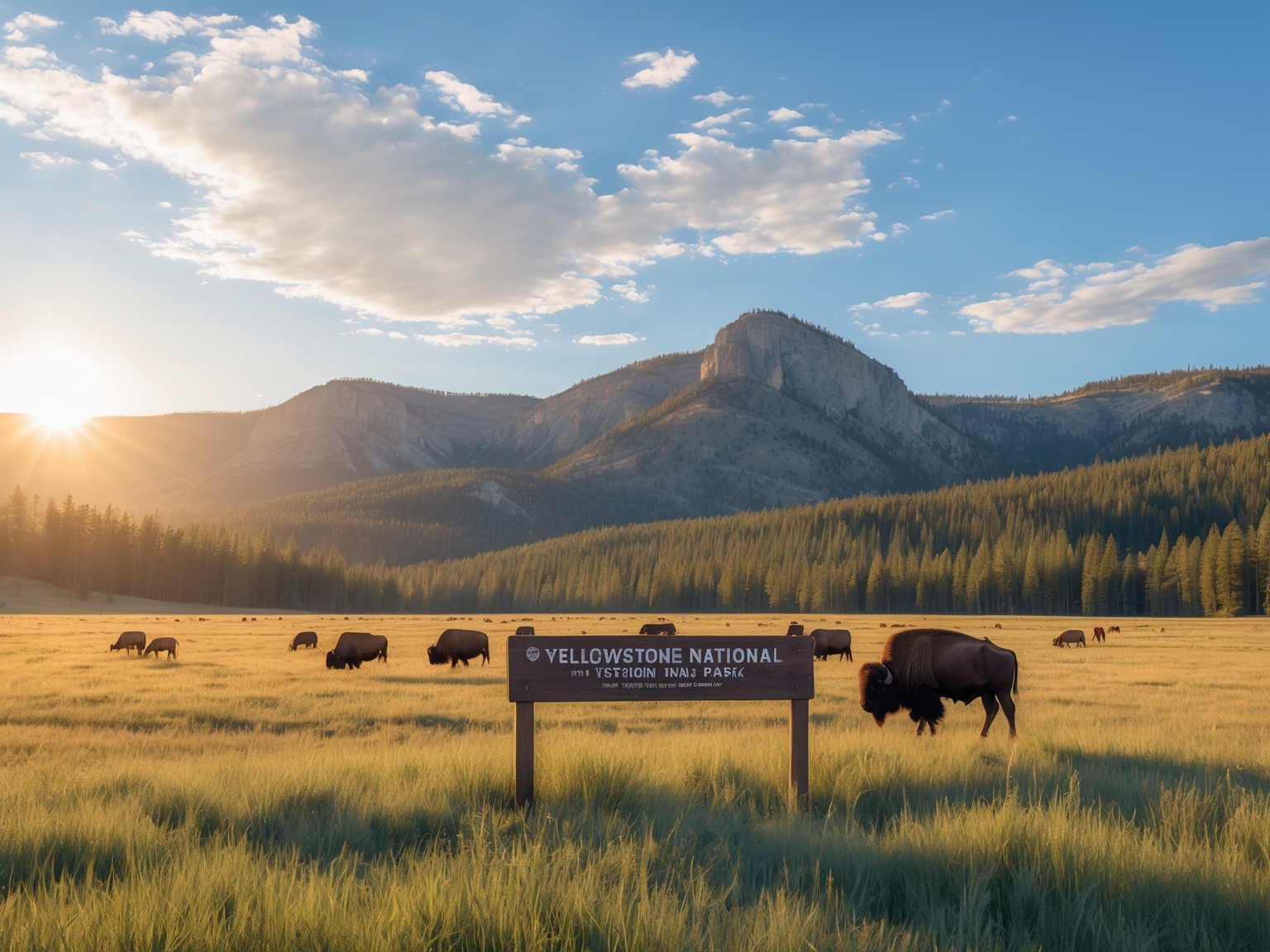Exploring the Heart of Nature: A Journey into Responsible Eco-Tourism in National Parks
Have you ever been embraced by the serenity of an untouched wilderness, feeling both humbled and awestruck by the sheer beauty of nature? My first encounter with the marvels of eco-tourism in national parks was nothing short of transformative. It was during a trip to the rugged landscapes of Yellowstone National Park when I realized the critical importance of preserving these natural sanctuaries. Join me as I recount some magical moments from my travels, share nuggets of wisdom, and offer solid tips for exploring these splendid natural wonders responsibly.
The Call of the Wild: A Personal Story of Yellowstone
Yellowstone was my awakening to the world of eco-tourism. Picture miles of sprawling meadows, the distant call of a wolf, and the smell of pine in the air. My trip began on a chilly morning, the landscape bathed in the golden hues of a rising sun. Excitement tingled through my veins as I embarked on a guided hike with Yellowstone Safari Company.
The guide, an astute naturalist, led us through geothermal wonders and majestic wildlife sightings while firmly emphasizing the importance of leaving no trace. One lesson that stuck with me was when we encountered a herd of bison. We were instructed to keep a respectful distance, using binoculars instead of approaching too closely. The experience was exhilarating; the wild was their home, and we were grateful visitors.
Recommendations for a Sustainable Adventure
While Yellowstone was a highlight, many parks worldwide stand as paragons of eco-tourism. Here are some recommendations that blend unforgettable experiences with responsible travel:
Torres del Paine National Park, Chile
- Full Name: Torres del Paine National Park
- Address: Magallanes y la Antártica Chilena, Chile
- Phone: +56 61 261 a 403
- Website: www.conaf.cl/parques/parque-nacional-torres-del-paine/
- Typical Price Range: Entry fee of about $30 USD
- How to Book: Online or walk-in at park entrance
Here, I camped under skies flecked with a million stars, embracing the rugged beauty of glaciers and peaks. The park strictly enforces regulations on waste disposal and fire usage, ensuring minimal human impact.
Banff National Park, Canada
- Full Name: Banff National Park
- Address: Alberta, Canada
- Phone: +1 403-762-1550
- Website: www.pc.gc.ca/en/pn-np/ab/banff
- Typical Price Range: Entrance fee of $10 USD daily
- How to Book: Online for activities and accommodations
A gondola ride revealed breathtaking vistas of emerald lakes and towering Rockies. The folks at Discover Banff Tours offered insights into the park’s conservation efforts and wildlife habitat preservation.
Jasper National Park, Canada
- Full Name: Jasper National Park
- Address: Alberta, Canada
- Phone: +1 780-852-6176
- Website: www.pc.gc.ca/en/pn-np/ab/jasper
- Typical Price Range: Entrance fee around $10-20 USD daily
- How to Book: Online or purchase passes at park gates
My sojourn here was delve into ancient forest paths and craggy mountain trails. There, I learned to respect the symbiotic balance between humans and nature.
Practical Tips for Responsible Eco-Tourism
Mini-Guide for Beginners
Embarking on a responsible journey requires thoughtful planning. Here’s a quick-start guide for beginners:
- Pack Smart: Carry reusable water bottles, biodegradable soaps, and eco-friendly sunscreen.
- Leave No Trace: Stick to marked trails, dispose of waste responsibly, and avoid picking plants or disturbing wildlife.
- Local Engagement: Choose local guides and support indigenous communities, respecting their culture and traditions.
Pros and Cons of Eco-Tourism
| Pros | Cons |
|---|---|
| Supports Conservation Efforts | Time-Intensive Preparation |
| Encourages Local Economies | Possibly Higher Costs |
| Promotes Cultural Exchange | Potential for Overcrowded Sites |
Risks and Mistakes to Avoid
There were moments of naivety during my travels, learning the hard way about the risks involved in eco-tourism:
- Avoiding Scams: Always verify tour operators and services. I once almost fell prey to a scam in a busy tourist area but managed to verify with locals before proceeding.
- Safety Issues: Keep updated on weather conditions and park alerts. A sudden snowstorm in Banff caught me unprepared, teaching me the vital lesson of checking forecasts regularly.
- Cultural Sensitivity: Learn a few respectful phrases if visiting areas with indigenous communities and be mindful of their customs, helping avoid unintentional offense.
Conclusion: Why Eco-Tourism in National Parks Is Worth the Journey
Each visit to a national park leaves an indelible mark on the soul, imparting lessons and sprouting newfound appreciation for the Earth. These untamed landscapes teach us humility and the essence of safeguarding our natural heritage. Embracing responsible eco-tourism isn’t just about travel; it’s about intertwining our stories with nature’s timeless tale.
So go ahead, heed the wild’s beckoning call. Treat nature with kindness, and you’ll find your spirit renewed. Whether you’re sipping hot cocoa under a starlit sky in Torres del Paine or hiking the emerald trails of Jasper, each moment offers an invitation to connect with the world and cultivate a legacy of preservation for future generations.
And remember, journeying with a purpose ensures these marvels endure, for everyone to experience tomorrow, just as you will today.











